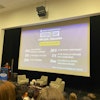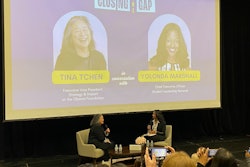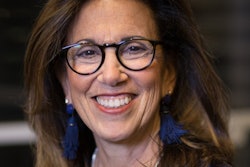Rather than large lecture-style classes, Sweet Briar College offers a hands-on experiential learning environment for engineering students.
While obtaining her undergraduate degree at Virginia Tech, Dr. Bethany Brinkman, associate professor of engineering at Sweet Briar, says she used to sit in the back of the classroom, take notes and “go about [her] way.” However, she says classes at Sweet Briar do not allow you to “hide.”
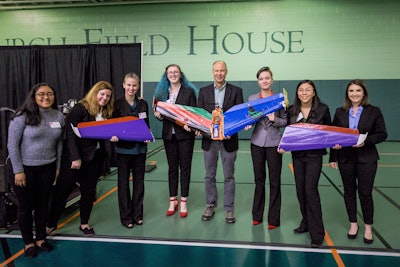 Dr. Kevin Kochersberger — founder of the first African Drone and Data Academy (ADDA) in Malawi — and students pose with low-cost drones made by the first class of ADDA students in January of 2020.
Dr. Kevin Kochersberger — founder of the first African Drone and Data Academy (ADDA) in Malawi — and students pose with low-cost drones made by the first class of ADDA students in January of 2020.“That’s not ideal for everybody, women or men,” she says. “At Sweet Briar, because of our small class size, because of our focus on the liberal arts, because of our focus on women’s leadership, you can’t help but take a leadership role in something. Whether that is on a team or it’s in control of your own learning.”
Within the Margaret Jones Wyllie ’45 Engineering Program, class sizes remain small to provide students with individualized attention. There are between five and 10 students in upper level courses while introductory courses have between 20 and 25 students.
The four-year program was established in the fall of 2005 and was endowed by alumna Margaret Jones Wyllie in December 2009 with a gift of $3 million. Sweet Briar’s engineering science program is accredited by the Engineering Accreditation Commission of the Accreditation Board for Engineering and Technology (ABET) and is one of only two degree-granting engineering programs at a women’s college in the U.S., according to Sweet Briar’s website.
When it comes to engineering accreditation, ABET “really checks and makes sure that the program is robust, is stable and is providing the necessary education,” says Brinkman. “And without it, your students can’t take ‘The Fundamentals of Engineering exam.’ So, it really legitimizes the program and says, ‘hey, we’re on par with everybody else.’”
More than 35% of Sweet Briar graduates receive their degree in a science, technology, engineering or mathematics (STEM) field, according to Sweet Briar’s website.
As part of the program, students are required to complete an eight-week internship related to engineering, which is usually done over the summer. Past internships included working with NASA, Boeing and local engineering firms.
Additionally, seniors complete a year-long capstone project. Students are divided into teams and work on design projects for outside clients. This year, with some adjustments due to the coronavirus pandemic, teams worked on projects for the Direct Air Support Center, SiriusXM radio and a local children’s museum.
“Having that kind of commitment to our students is, I think, what ends up being what is truly distinctive,” says Dr. Meredith Woo, president of Sweet Briar College.
The career payoff
Through surveys with alumni, Sweet Briar has found that hands-on learning is beneficial for students’ future careers.
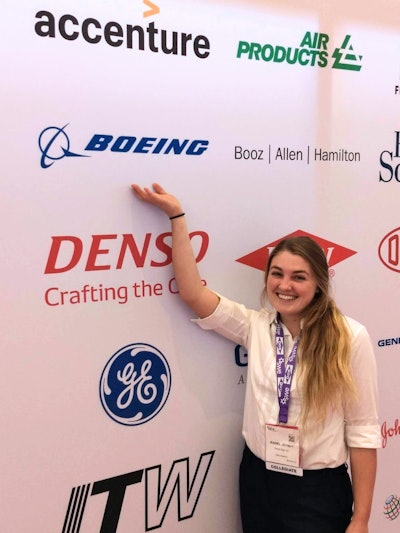 Isabel Joyner ’20 poses after just learning she’d earned an internship at Boeing. Isabel was later hired by Boeing’s Research and Technology division as a propulsion engineer for the Artemis program, working to put the first woman and next man on the moon by 2024.
Isabel Joyner ’20 poses after just learning she’d earned an internship at Boeing. Isabel was later hired by Boeing’s Research and Technology division as a propulsion engineer for the Artemis program, working to put the first woman and next man on the moon by 2024.“Employers routinely say that our students are comfortable getting their hands dirty,” says Brinkman. “They’re confident. I think that is where it comes out. In other words, they have already done engineering. So, they just step right into the workplace.”
Gender disparities are significant when it comes to STEM fields.
According to the Society of Women Engineers (SWE), 19.9% of bachelor’s degrees are awarded to females in engineering and computer science. Only 6.1% of bachelor’s degrees in engineering are awarded to women of color.
Additionally, in the workforce, only 13% of engineers and 17% of tenured and tenure-track faculty in engineering are women, SWE reported.
“I think what we have is not the solution, but one of the solutions,” says Woo. “That is real and that takes place in small classrooms doing project-based work in an environment without misogyny and intimidation.”
To encourage more females to pursue STEM degrees and careers, Sweet Briar offers “Explore Engineering” events. High school girls are invited to the college to participate in interactive engineering projects. Weekend events are offered throughout the year and there is also a week-long, for-credit course over the summer.
Students learn about the design process and work with engineering student mentors and faculty members. Over the last 10 years, more than 500 students have participated in these events, according to the school.
Additionally, in late February each year, engineering students are celebrated through the National Engineers Week. Sweet Briar hosts a banquet and networking event for those in the Lynchburg and Shenandoah Valley area.
During the banquet, participants can hear from speakers within STEM fields. This year, Sweet Briar hosted Dr. Kevin Kochersberger, who is an associate professor of mechanical engineering at Virginia Tech. In January 2020, he opened the first Drone and Data Academy in Malawi.
“It’s an opportunity for the local engineers to showcase their work, as well as Sweet Briar to sort of start to blend the student and the professionals and the high profile engineers together and support the engineering community in that way,” says Brinkman.
A ‘service profession’
The school also offers an “Introduce a Girl to Engineering Day” during which high school girls come to campus to learn more about engineering, participate in projects and receive one-on-one time with speakers from the banquet event.
Additionally, Brinkman emphasized that engineering should be viewed as a “service profession.”
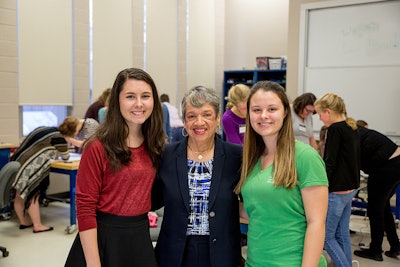 Students meet Dr. Christine Darden, one of the NASA scientists profiled in the bestselling book Hidden Figures. Darden was the 2018 keynote speaker at the Central Virginia National Engineers Week Banquet celebration, which is hosted by Sweet Briar.
Students meet Dr. Christine Darden, one of the NASA scientists profiled in the bestselling book Hidden Figures. Darden was the 2018 keynote speaker at the Central Virginia National Engineers Week Banquet celebration, which is hosted by Sweet Briar.“Engineering really is about helping people,” she adds. “But framing engineering as that rather than [as] adversarial or all math all the time really helps to expand engineering’s potential and help students to view it as a way of expressing themselves.
“With that in mind, … we try to make projects that are fun and that mean something. In other words, you are not just creating some ‘doo hickey’ that does something. No, this is something that can be used to help people.” In terms of the benefits of learning in an all-female environment, there is a lack of intimidation often experienced in a co-ed classroom, Brinkman says.
For example, Sweet Briar engineering students work in the machine shop in their first year. In co-ed classes, Brinkman says there can oftentimes be males who are already experienced in machining and may want to work ahead of the rest of the class.
Woo says the engineering program offers a “culture of empowerment and encouragement.”
“It has a very different kind of ethos while being as rigorous as engineering classes that you might find any place else,” she says.
This article originally appeared in the July 23, 2020 edition of Diverse. You can find it here.


